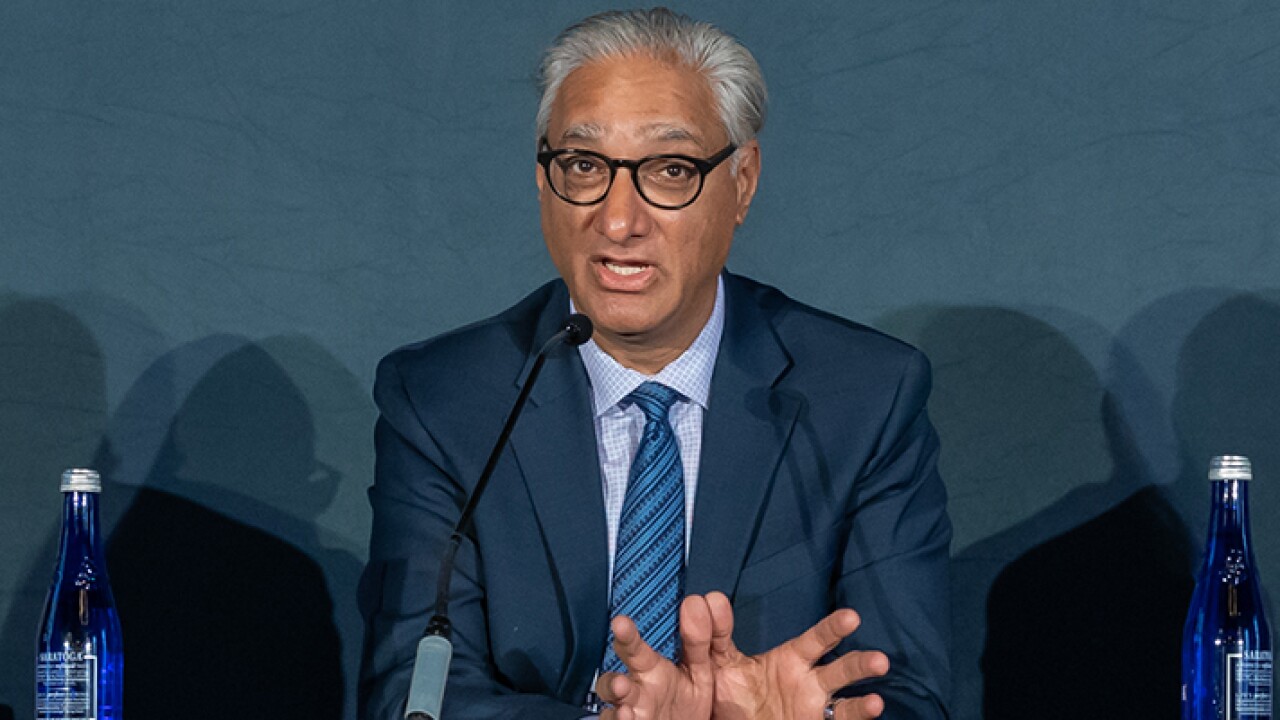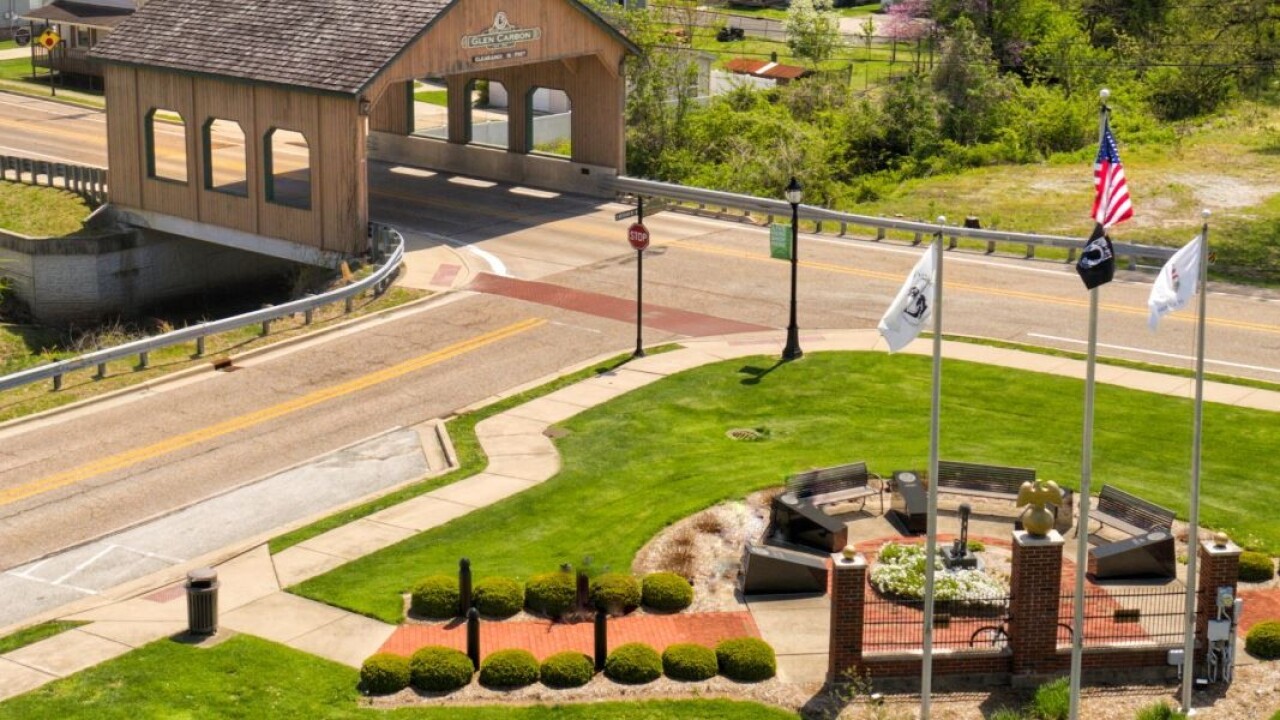Pennsylvania Gov. Josh Shapiro announced a new
The 10-year program is Pennsylvania's first economic development plan in nearly two decades and targets areas including site readiness, workforce development and housing and community development.
"For too long, Pennsylvania's neighboring states have invested and focused on economic development while our Commonwealth has lacked a targeted game plan and serious investment," Shapiro, a Democrat, said in a speech announcing the program Tuesday in Bethlehem.

Ohio, Shapiro noted, has provided seven times more economic incentives for businesses than Pennsylvania, despite being a smaller state.
But Pennsylvania's economy is big enough that it's compensated for these disparities, according to Geoffrey Buswick, a managing director at S&P Global Ratings.
"I was surprised, I didn't recognize they didn't have a formal ten-year plan," Buswick said. "If it's more focused and has more of a targeted approach, I'm interested to see if it accelerates some of [Pennsylvania's] economic development."
The economic development plan has five core goals: invest in economic growth, be an attractive partner to businesses, expand workforce development programs, support innovative industries, and develop housing and communities.
The plan is light on details, noted Stephen Herzenberg, executive director of progressive think tank the Keystone Research Center. But Shapiro may expand the plan after his budget proposal is released Tuesday.
Shapiro said that Pennsylvania — the nation's fifth-most populous state, located near the biggest U.S. markets with a relatively low cost of living — should be an appealing location for businesses, but its government sometimes holds it back.
The plan includes investments in site development to prepare sites for businesses to open in the state. This will build on the $10 million PA SITES pilot program that started last fall, which the administration yielded 102 applications for more than $256 million in funding.
The plan will also create a program where the commonwealth certifies sites as "shovel-ready" for businesses seeking to move in. The program already exists in states like Virginia, Tennessee and North Carolina.
When the governor took office last year, he said, business licenses could take eight weeks to process. Now they take three days. He called this "moving at the speed of business."
According to the plan, this will require the reinvention of the
The department was "eviscerated" by then-governor Tom Corbett around 2010, Herzenberg said, which put a stop to investments in many of the areas the new economic development plan will cover.
The workforce development section of the plan includes $2 million for "Career Connect," an internship program, and calls for apprenticeships, higher education reform and enticing young people not to move — the report notes that only 41% of people who graduate from Pennsylvania's universities stay in the commonwealth.
Herzenberg praised this section of the plan. Pennsylvania's public universities are very expensive, Herzenberg said, and many areas of the commonwealth have few alternatives.
"Forty percent of our population doesn't have a local community college," Herzenberg said. "There's a giant community college desert in the rural [areas] of Pennsylvania."
Point four of the plan invests in five key industries: agriculture, energy, life sciences, manufacturing and robotics and technology. These sectors have historically been strong in Pennsylvania, Buswick said.
"The "eds and meds" are something that Pennsylvania has been known for for years," Buswick said; Pittsburgh and Philadelphia are nationally known for robotics and life sciences, respectively.
The plan calls for financial support to entrepreneurs and will create "innovation councils" connecting industries and researchers in Pennsylvania's universities. It also directs $10 million toward innovation in the agriculture industry.
Energy is a divisive issue in Pennsylvania, Herzenberg said. The commonwealth has a lot of coal and natural gas, and many jobs and local economies are dependent upon those energy sources.
The plan celebrates the commonwealth's status as the second largest energy provider in the United States and mentions natural gas and pipelines along with nuclear power and hydro turbine manufacturing. But it doesn't indicate which parts of the energy industry will receive more investment and development.
Herzenberg argued that the governor could, for instance, promote a plan to put
"I think there's more work to be done in this plan to infuse more of a forward-looking climate change lens into the energy and manufacturing components," Herzenberg said.
The plan's final point, regional development, seeks to ensure the commonwealth has enough housing and infrastructure to support a burgeoning business sector.
The plan will spend $25 million for the Main Street Matters program to fund municipalities' downtown and main street projects. It also includes $3.5 million for the Pennsylvania Regional Hubs Challenge, inspired by the federal government's Build Back Better Regional Challenge.
The commonwealth will seek more federal funding for infrastructure and workforce development and will "partner with residential developers to construct and rehabilitate new and existing housing stock across the commonwealth."
More details of the plan will become clear when Shapiro releases his budget request, but the true benefits of economic development take years to materialize, Buswick said.
When a government prepares a site, "you may have that site empty for four years," Buswick said. "And so, for four years, you're looking at, 'Wow, we spent all that money. Should we have spent it?' The fifth year, you get something great, and 'Oh, of course we should've spent it.'"











